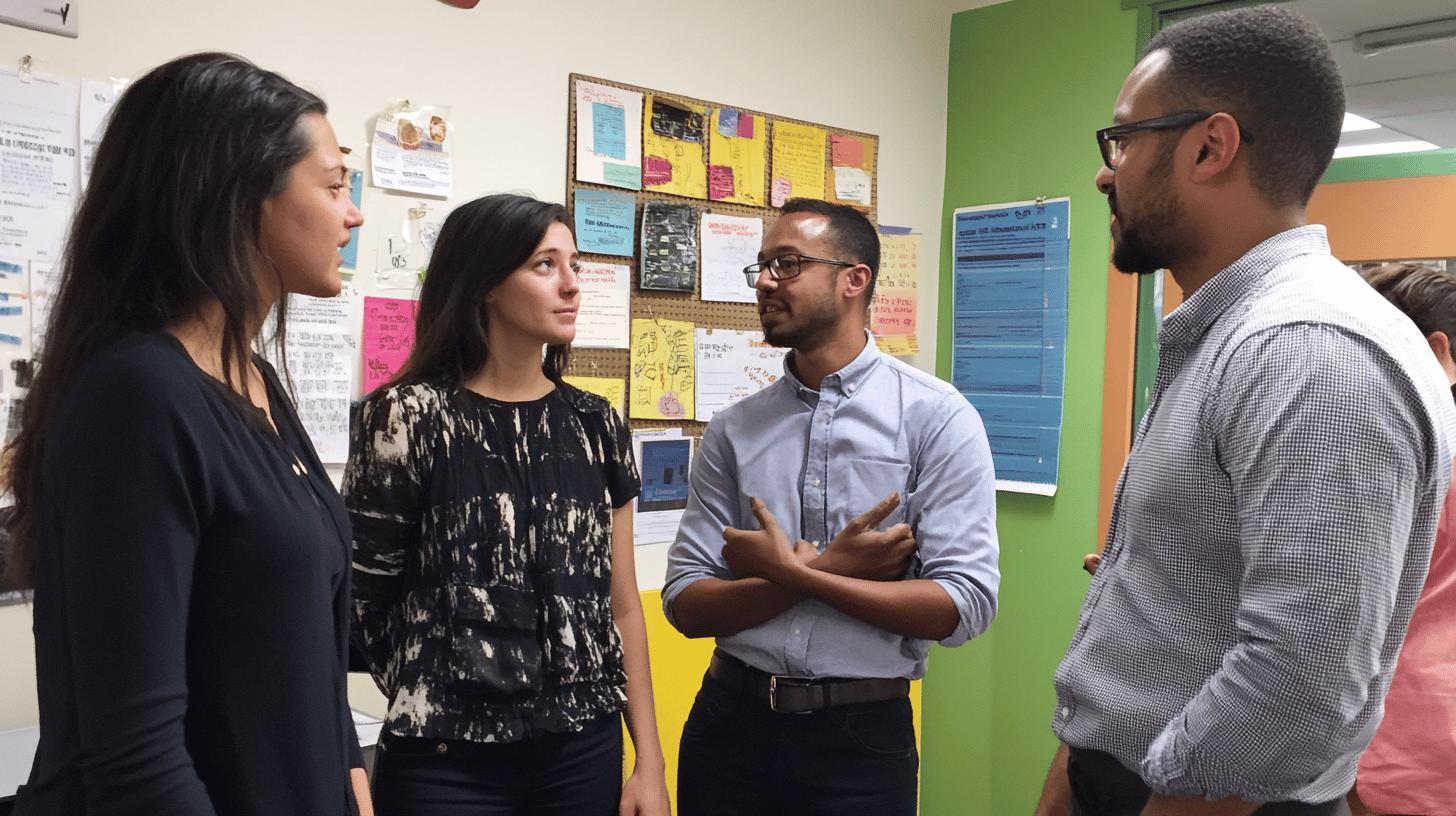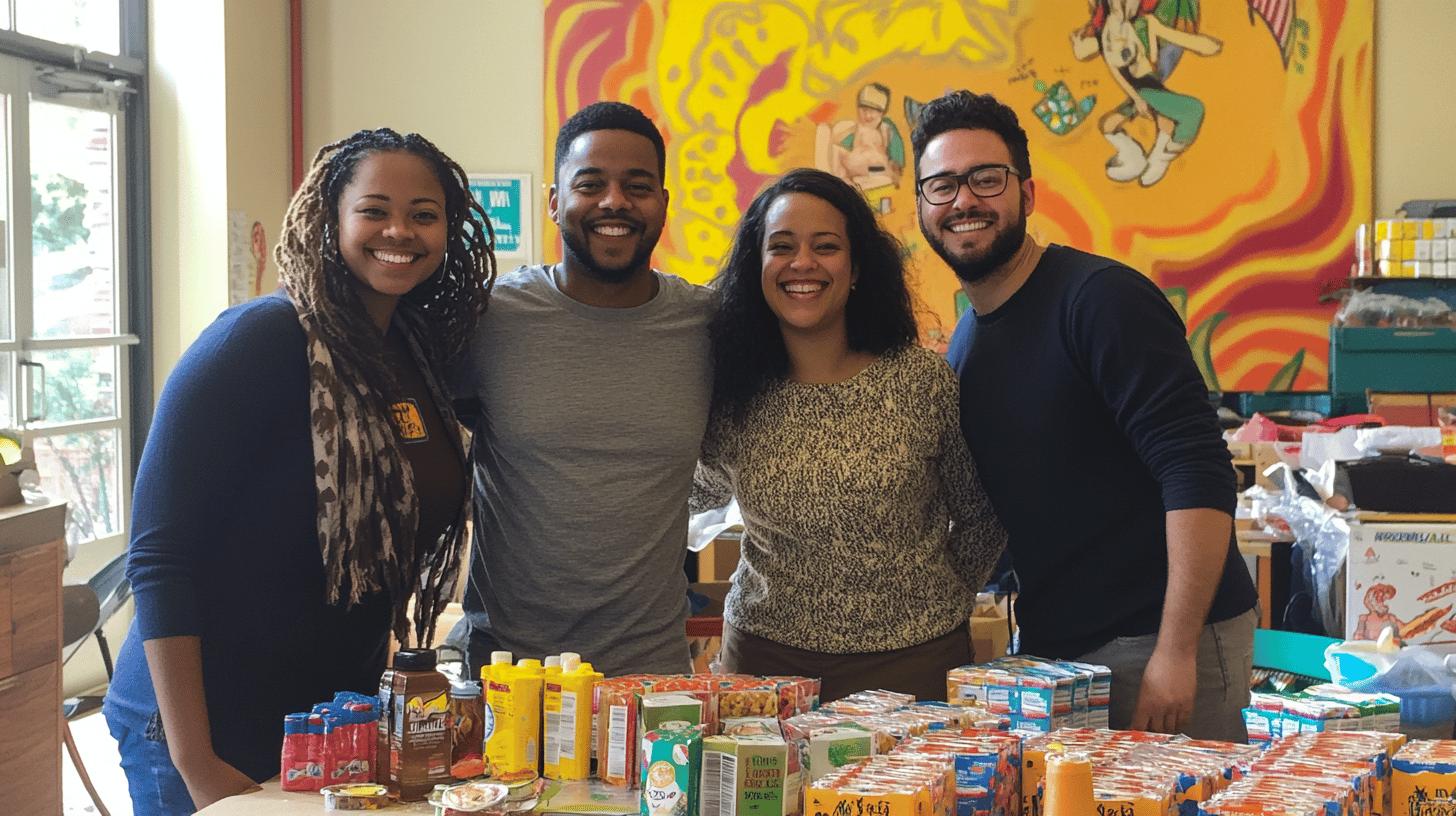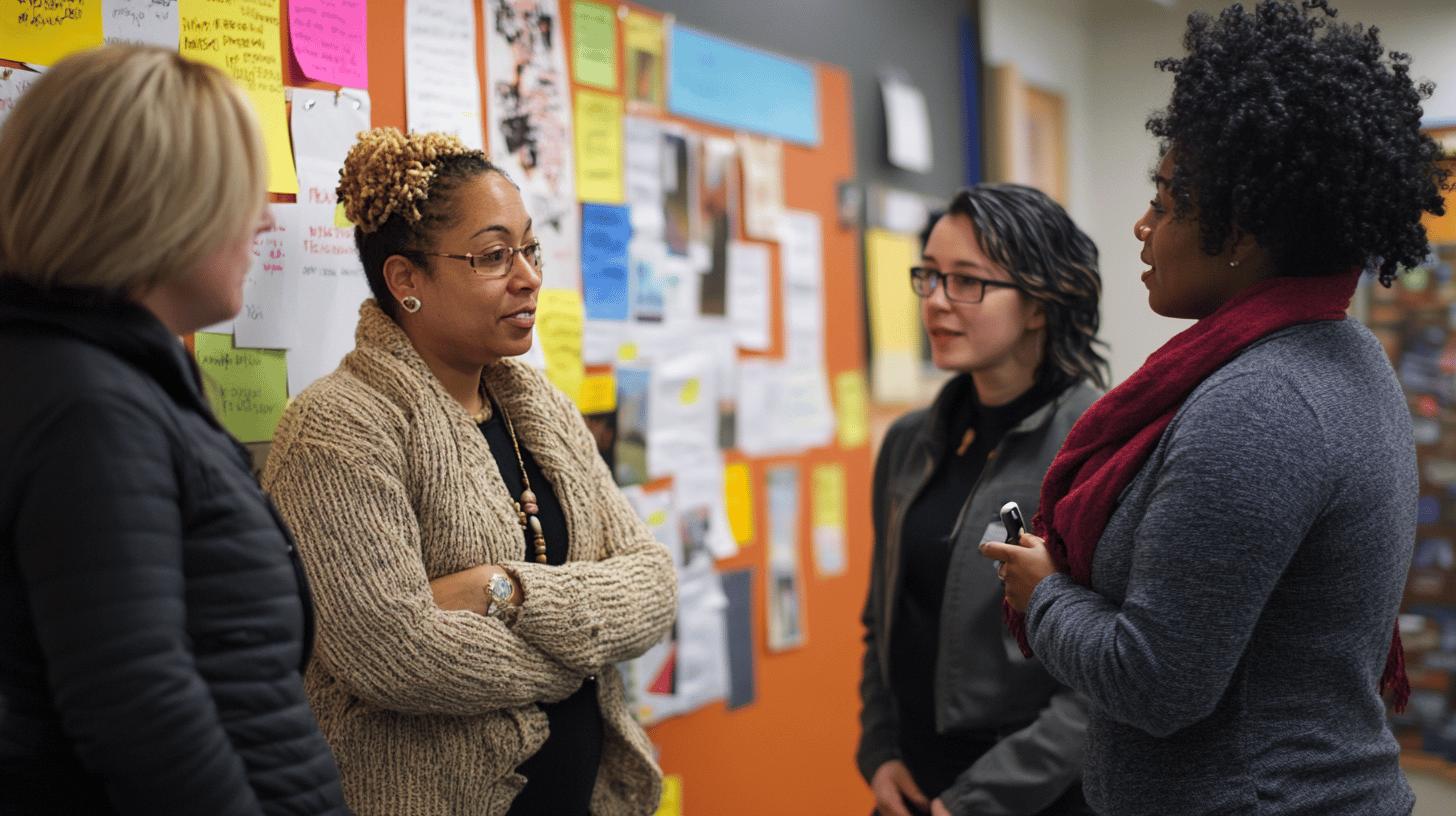In a world where genuine connections often seem like a rarity, companies stepping up to foster meaningful community ties through giving back shine like beacons of hope.
These businesses don't just operate—they lead by example in corporate social responsibility. By championing sustainability goals, forging partnerships with local nonprofits, and embracing donation matching programs, they create a ripple effect of positive change. Intel, with its commitment to net positive water use, and AvalonBay, through its extensive charity support, set the stage for a new era of corporate accountability. Such initiatives demonstrate the power of businesses that prioritize community enrichment while reinforcing their role as active participants in societal improvement.

Businesses that give back to the community play a crucial role in advancing corporate social responsibility by aligning their goals with social and environmental well-being. Companies like Intel exemplify leadership by setting ambitious sustainability targets such as achieving net positive water use and committing to 100% renewable energy. These efforts not only reduce environmental footprints but also foster a deeper connection with communities that value ecological stewardship.
Philanthropic initiatives are central to the corporate giving landscape. Many companies implement robust donation matching programs, effectively doubling the impact of employee contributions and encouraging broader participation. Local business donations paired with strategic nonprofit collaborations amplify community support, as witnessed in AvalonBay’s partnerships focused on affordable housing and neighborhood development. These alliances enable businesses to channel resources and expertise into meaningful projects with measurable social benefits.
Employee volunteer programs further enhance community impact by mobilizing staff around shared causes. Offering paid volunteer days and facilitating organized volunteer efforts demonstrate a company’s investment in social welfare. Such programs strengthen employee engagement and build a culture of giving back. Additionally, philanthropic initiatives that address pressing social issues help businesses become active agents of positive change, enriching both the community and the company’s long-term sustainability.

Apple leads among top giving companies by integrating sustainable product development with ethical sourcing. Their focus on eco-friendly products, including the use of recycled materials, sets a benchmark for businesses aiming to minimize environmental impact while promoting responsible consumption.
AvalonBay Communities demonstrates the power of local nonprofit collaboration through its commitment to affordable housing and neighborhood revitalization. By partnering with community organizations, AvalonBay leverages resources and expertise to create lasting social value, highlighting the importance of hands-on community engagement projects.
Intel’s ambitious sustainability goals—including net positive water use and zero total waste—reflect a long-term vision for corporate responsibility that extends beyond philanthropy to systemic environmental stewardship. Similarly, TriNet Group’s substantial corporate donation programs provide critical financial support to various charitable causes, reinforcing their role as a model for effective business donation strategies.
Microsoft Azure IoT enhances community engagement by offering educational workshops on sustainability. These programs empower individuals and organizations with knowledge and tools to contribute meaningfully to environmental and social causes.
Volunteer programs offering paid volunteer days have become central to many companies’ community initiatives. These programs increase employee participation and deepen the company’s impact by fostering a culture of shared responsibility and mutual support.
The Journey app plays a unique and innovative role by fostering authentic community connections through its well-designed features. Journey supports meaningful interaction by enabling users to create customized communities with rich engagement tools such as community feeds, group chats, and accountability groups. It encourages individuals to participate actively in discussions, share experiences, and build lasting relationships with like-minded members. By focusing on genuine social connections rather than superficial interactions, Journey provides a safe, trustworthy environment that enriches both personal growth and community cohesion.

Businesses dedicated to giving back to the community can create lasting impact by implementing strategic philanthropy models. Donation matching programs, for example, double employee contributions, effectively multiplying the resources directed toward charitable causes. TriNet Group exemplifies this approach, enhancing employee engagement while maximizing corporate giving benefits. Similarly, structured volunteer programs provide a fulfilling way for employees to participate actively, promoting a culture of shared purpose and mutual support.
Clear and transparent donation request processes streamline community contributions, ensuring resources reach the right organizations efficiently. Microsoft Azure IoT highlights the importance of transparency and education by combining donation efforts with sustainability workshops, fostering informed giving and aligning corporate values with community needs. Cause marketing campaigns further amplify impact by blending brand messaging with social good, helping businesses connect authentically with their audiences while supporting critical causes.
Fundraising partnerships with local nonprofits are central to expanding a company’s community footprint. These collaborations leverage diverse ideas and resources, enabling businesses to co-create initiatives that address specific local challenges. Platforms like
Journey support such endeavors by providing a vibrant, safe, and trustworthy environment where businesses can foster meaningful connections with nonprofits and community members alike. Journey’s AI-powered tools simplify organizing events, managing volunteers, and sustaining ongoing engagement, enriching philanthropic strategies with seamless communication and continuous growth.

Employee volunteer programs serve as a crucial backbone for businesses committed to giving back to the community. Companies like Hasbro and Wipro demonstrate how structured volunteer initiatives and inclusive hiring practices enhance both employee satisfaction and community outcomes. Offering paid volunteer days not only motivates participation but also signals a company’s genuine commitment to social responsibility, fostering a culture where giving back is integral to the workplace.
Inclusive hiring practices contribute to a diverse team that brings varied perspectives and skills to community projects. This diversity strengthens the impact of corporate volunteering by enabling richer collaboration and innovative solutions tailored to community needs. Structured volunteer programs act as effective models of corporate responsibility, providing clear frameworks and resources that encourage ongoing employee engagement and meaningful contributions.
The Journey app subtly enhances these efforts by nurturing authentic community engagement among employees. Journey’s vibrant, safe, and trustworthy environment supports real connections through customizable communities, group chats, and accountability groups. Its AI Sidekick helps organize volunteer events and facilitates ongoing participation, enabling businesses to cultivate deeper, long-term relationships within their communities.

Leading businesses integrate eco-friendly initiatives as a core element of their commitment to giving back to the community. Intel’s dedication to achieving 100% renewable energy exemplifies how cutting-edge corporate sustainability efforts can significantly reduce environmental footprints. This long-term endeavor aligns with broader community goals by lowering pollution and conserving critical natural resources.
Apple’s approach focuses on sustainable product development, using recycled materials and minimizing packaging waste. This strategy promotes responsible consumption habits among customers and supports environmental stewardship, enriching communities by encouraging mindful product choices that benefit the planet.
Microsoft Azure IoT advances sustainability through educational workshops, empowering individuals and organizations to adopt greener practices. By sharing knowledge and tools, Microsoft fosters environmental awareness that extends beyond corporate walls, cultivating a culture of continuous growth and responsibility within communities.

Launching a business that truly gives back to the community begins with defining clear community engagement goals and setting purposeful corporate social responsibility (CSR) objectives. This foundational step guides all subsequent efforts, ensuring that initiatives align with the company’s values and the needs of the community. Effective goal-setting also provides a framework to measure progress and impact over time.
Next, identifying local nonprofits and community projects for collaboration is crucial. Partnering with organizations that have established trust and credibility in the community allows businesses to leverage diverse resources and ideas. Such collaborations create a more fulfilling and impactful giving experience by combining expertise, networks, and shared commitment toward common causes.
Establishing a transparent donation request process and tracking impact metrics enhances accountability and streamlines contributions. Clear guidelines for requests ensure funds and resources are directed efficiently, while ongoing measurement fosters continuous growth and improvement. Utilizing online donation platforms simplifies the giving process, making it easier for both businesses and supporters to participate and monitor their contributions.
The Journey app offers a vibrant, safe, and trustworthy environment to foster genuine connections and maintain ongoing community engagement. With features like customizable community creation, group chats, event management, and AI-powered moderation, Journey supports businesses in organizing and expanding their philanthropic efforts. Its tools enable seamless communication, resource sharing, and meaningful interaction among like-minded members, enriching both the business and community experience.
As the landscape of corporate social responsibility evolves, businesses that give back to the community play a pivotal role. By embracing sustainability, engaging in nonprofit collaborations, and fostering genuine connections, companies set a new standard of corporate leadership. Through the diverse examples of Intel, AvalonBay, and others, businesses demonstrate the profound impact these efforts have on community well-being and environmental sustainability.
Innovative strategies and employee volunteer programs further highlight the necessity of aligning business goals with community enrichment. These elements not only enhance a company's reputation but also empower employees to participate actively in societal change. The emphasis on green practices and meaningful social interactions showcases how companies can integrate ethical standards into the fabric of their operations.
In conclusion, the movement of businesses that give back to the community marks a transformative shift towards more sustainable and socially responsible corporate cultures. By adopting these practices and setting new benchmarks, companies contribute to a global culture of giving, ensuring long-lasting benefits for both communities and the environment. As more businesses join this journey, the collective efforts can lead to a brighter, more connected future, underscoring the value of corporate contributions to societal progress.
A: Many businesses give back through philanthropic initiatives, nonprofit partnerships, and community development projects. Giants like Intel and Apple engage in sustainability and donations. Local businesses often support charity events and community grants.
A: When a company gives back to the community, it's often referred to as corporate social responsibility (CSR). CSR involves businesses proactively contributing to social, environmental, and economic well-being.
A: An example includes Intel's focus on renewable energy and community partnerships. Also, AvalonBay collaborates with nonprofits for affordable housing, demonstrating impactful community giving.
A: To secure donations, approach businesses with a clear proposal. Highlight mutual benefits and ensure mission alignment. Offer details on how contributions impact community causes to encourage engagement.